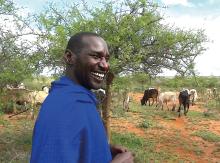Land Library
Welcome to the Land Portal Library. Explore our vast collection of open-access resources (over 74,000) including reports, journal articles, research papers, peer-reviewed publications, legal documents, videos and much more.
/ library resources
Showing items 1 through 9 of 318.The articles in this Bulletin are written by the following organizations and individuals: National Coordinator for the Defense of the Mangrove Ecosystem (C-CONDEM), Ecuador; Yayasan Pusaka Bentala Rakya (Bentala Raya Heritage Foundation), Indonesia; Venezuelan Observatory of Political Ecology and
This report aims to illustrate how selected companies in Malawi, Mozambique and Malaysia are implementing commitments to international best practices on land rights.
Land and associated property is a major source of individuals’ identity and livelihood.
It is widely accepted among economists and policy-makers that secure and well-defined land property rights are integral to poverty alleviation and economic prosperity. But how do legal systems, land tenure and economic development really relate to one another?
Access to land is key to achieving food security, poverty alleviation, social equity and environmental protection. A brief insight in land governance-related principles and policies of the German development assistance.
Following the end of apartheid, South Africa’s government set itself ambitious goals with a planned land reform. However, there have since been barely any changes in the country’s agricultural structure, and the positive impacts that were hoped for on rural livelihoods have hardly materialised.
Indigenous Peoples and local communities hold a large share of the world’s land area under customary systems. However, there is a tremendous gap between what is held by communities in practice and what is formally recognised by governments.
The year 2016 marks 15 years since the new wave land reforms became operational in Tanzania. Despite its ambitious goals – encouraging land registration and titling, and empowering women and other vulnerable groups – the results are disillusioning.





